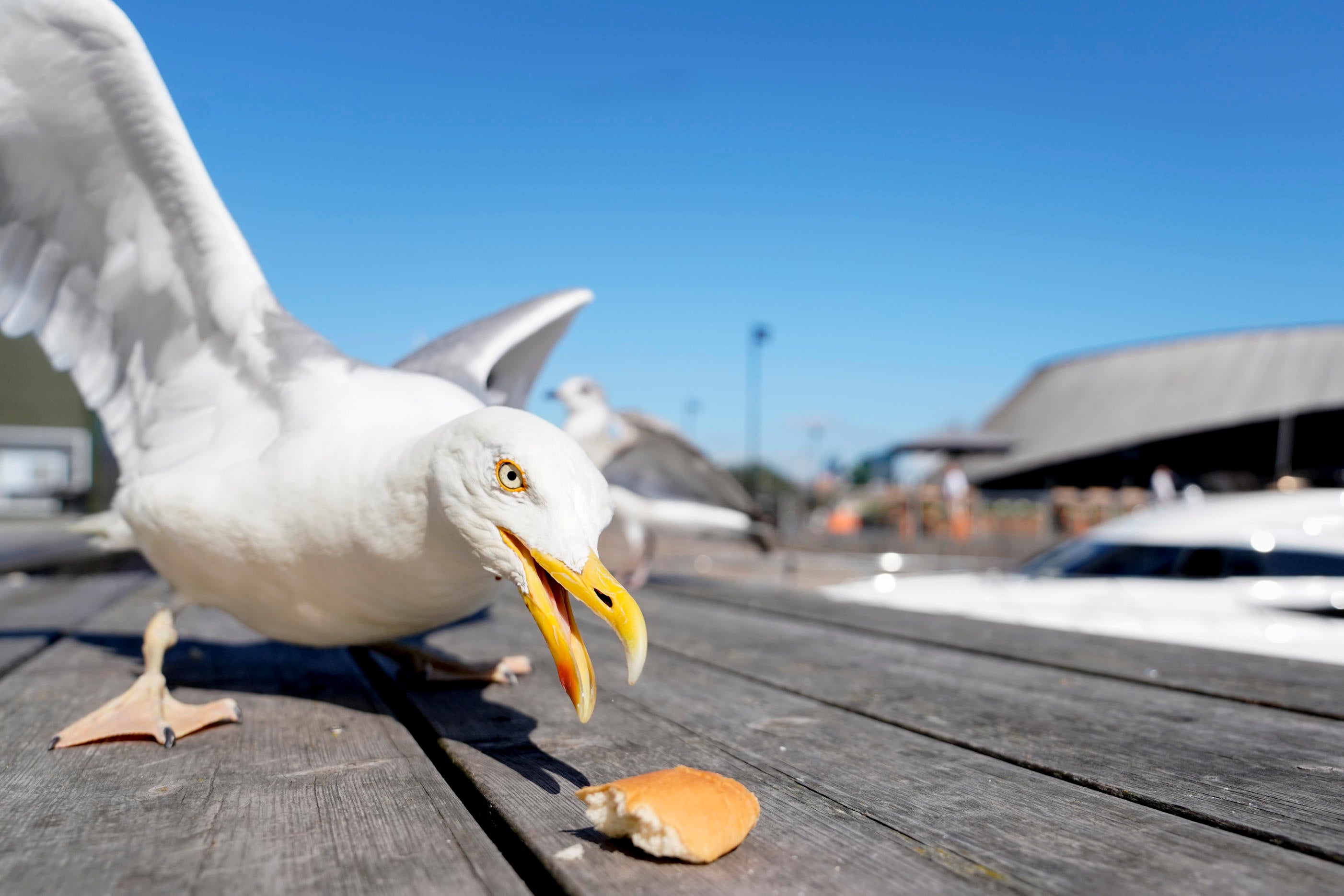Seagulls have adapted to school break times to forage for pupils’ food, study suggests
Urban birds’ feeding patterns also closely match opening and closing times of waste centre, research shows

Your support helps us to tell the story
From reproductive rights to climate change to Big Tech, The Independent is on the ground when the story is developing. Whether it's investigating the financials of Elon Musk's pro-Trump PAC or producing our latest documentary, 'The A Word', which shines a light on the American women fighting for reproductive rights, we know how important it is to parse out the facts from the messaging.
At such a critical moment in US history, we need reporters on the ground. Your donation allows us to keep sending journalists to speak to both sides of the story.
The Independent is trusted by Americans across the entire political spectrum. And unlike many other quality news outlets, we choose not to lock Americans out of our reporting and analysis with paywalls. We believe quality journalism should be available to everyone, paid for by those who can afford it.
Your support makes all the difference.Anyone accustomed to a seaside stroll or lunch in a park might already suspect that seagulls are wily predators when it comes to snatching a sandwich or ice cream.
Now, a study has confirmed that the birds do in fact know exactly when and where is best to forage for human food.
Scientists fitted gulls with GPS backpacks to reveal how they were fined-tuned to foraging in built-up areas.
In the study by the University of Bristol, tracker backpacks were fitted to 12 lesser black-backed gulls to record their behaviour.
The number of gulls at three different settings in the city - a public park, a school and a waste centre - was also observed.
Results showed the birds' foraging patterns closely matched the timing of school breaks and the opening and closing times of the waste centre.
The number of gulls present at the school was highest at 11.15am and 12:45pm, which coincided with the school lunch break.
At both the school and the waste centre, gulls were observed waiting on the surrounding rooftops before school breaks and before waste was unloaded, implying that they were waiting there specifically for food to become available.
Researchers said lower numbers of gulls were present at the waste disposal site at weekends, when there were fewer rubbish truck drop-offs.
Their activity in the public park appeared to correspond with the availability of natural food sources, such as insects and earthworms.
The findings, published in Ibis: the International Journal of Avian Science, suggest gulls have the behavioural flexibility to adapt their foraging behaviour to human time schedules.
Gulls, the study’s authors said, are an example of a species that thrives in cities, thought to be as a result of several factors including higher temperatures, fewer predators, ample nesting sites and predictable food conditions.
Dr Anouk Spelt, lead author, said: “Our data showed that gulls were not only present in high numbers during lunchtime to feed on leftovers, but also just before the start of the school and during the first break when students had their snack.
“Similarly, at the waste centre the gulls were present in higher numbers on weekdays when the centre was open and trucks were unloading food waste.
“Although everybody has experienced or seen gulls stealing food from people in parks, our gulls mainly went to park first thing in the morning, and this may be because earthworms and insects are present in higher numbers during these early hours.“
Dr Shane Windsor, co-author of the study, added: ”With this study in Bristol we have shown that gulls in cities are able to adapt their foraging schedule to make best use of food resources depending on their availability.
“Some gulls even used all three feeding grounds in the same day, suggesting they might track the availability to optimise their energy intake.
”These results highlight the behavioural flexibility of gulls and their ability to adapt to the artificial environments and time schedules of urban living.“


Join our commenting forum
Join thought-provoking conversations, follow other Independent readers and see their replies
Comments